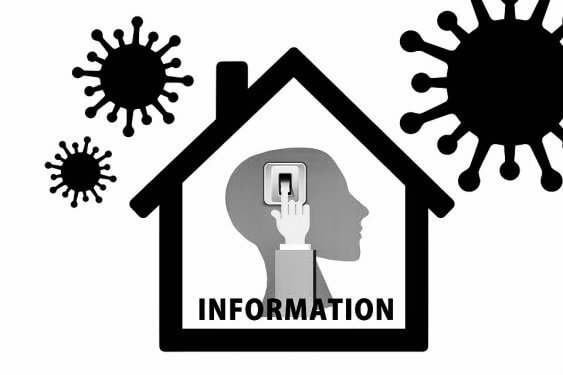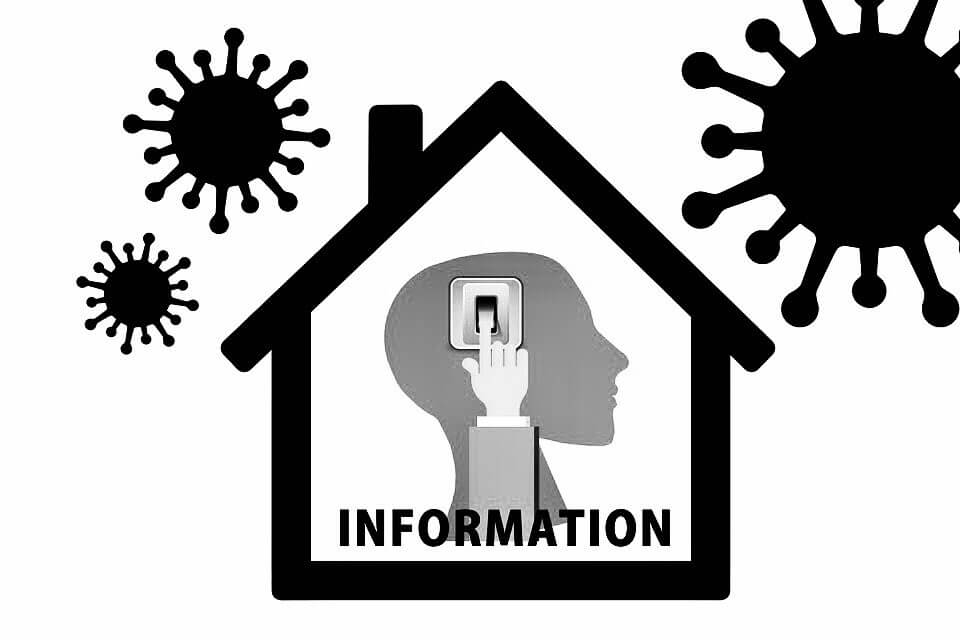Pakistan’s (Mis)Information Overload Amidst Corona Outbreak

By Warda Malik

No copyright infringement is intended
“Corona is a snail that latches onto your skin,” read my mother from a WhatsApp message only two months ago. Around that time, the threat of the pandemic seemed like a distant reality that some people in China had to deal with. There were “online rumors” about Corona on WhatsApp, Instagram, and Facebook, but of course few would bother to Google that it is, in fact, a virus and not a snail. This was an example from my parents’ generation, but what was my generation up to as “their (Chinese) reality” became “our reality” a few weeks later with the global Corona outbreak?
Two weeks ago, one of my old friends forwarded me a WhatsApp text that urged Pakistanis to stock grocery items for the next two months because the stores will soon run out, like they–apparently–did in Italy. There was also a comparison of Pakistan’s number of COVID-19 cases with that of Italy based on epidemiology principles and data projections that were obviously not important enough to mention. No one dared to ask how we arrived at such numbers. The text also reinforced numerous times that it was my civic responsibility to forward it to every single person in my contact list.
A quick Google search would show anyone that the grocery stores in Italy are open. If you go a step further, you might even find out about the economic challenges that hoarding practices pose for businesses. Another search would tell you that it does not make much sense to sit at home and use your basic data skillset to predict the spread of virus, let alone compare it with another country, based on the number of factors that are difficult to take into account. The differences in population demographics, government measures, limited knowledge about the spread of virus, political environments, and public health systems are some of the factors to keep in mind when we think about generalized predictions and comparisons between countries. But, of course, few of us would waste time on such a search and instead utilize it to forward texts to everyone on our contact list to fulfill our civic responsibility–ultimately, one which incites fear and panic.
At this period, from a policy-maker’s standpoint, you would want there to be some degree of fear to ensure the public practices precautionary measures against the pandemic. But the problem with unregulated spread of misinformation is that it operates in the blurry line between chaos and disorder that poses additional challenges on an institutional level and legitimate fear that holds people to abide with the preventative measures. If there are not enough steps taken to curtail its spread, it will continue to amplify peripheral ideas and alternative narratives that encourage distrust in public institutions and render facts to a place of irrelevance.
With the rapid spread of misinformation amidst COVID-19 pandemic, only few bother to question the content of WhatsApp texts on their factual claims and cure themselves from the incessant ignorance that haunts their worldview. However, it is a much more cumbersome process to come to terms with the limits of our knowledge, make an effort to acknowledge our ignorance, and inculcate the curiosity and humility to exercise civic responsibility to spread authentic and factual information. So, how much do facts, really, matter?
According to Hans Rosling, a Swedish physician and the author of Factfulness, a fact-based worldview “creates less stress and hopelessness than the dramatic worldview” and makes us “see what we have to do to keep making it (the world) better”. While it might be tempting for Pakistan’s policy-makers to allow misinformation to incite fear in this period, the cost of a dramatic and negative worldview also involve hopelessness, panic, and chaos––that’s a cost we may not want to pay in a country that has been through enough already.
With a background in social research, public policy, and politics from New York University, Warda Malik is interested in innovative approaches to research for equitable and inclusive development in Pakistan.
No copyright infringement is intended



